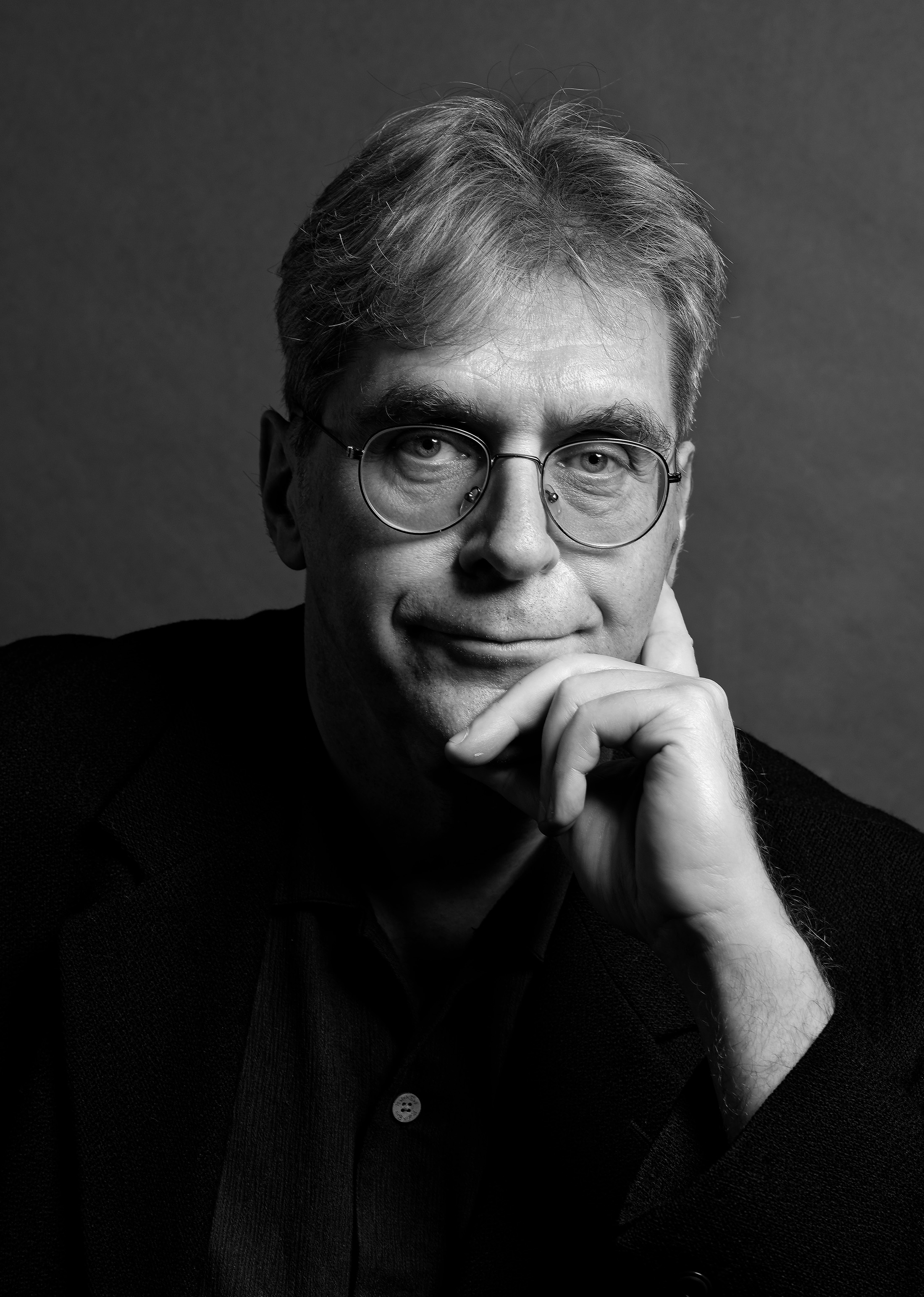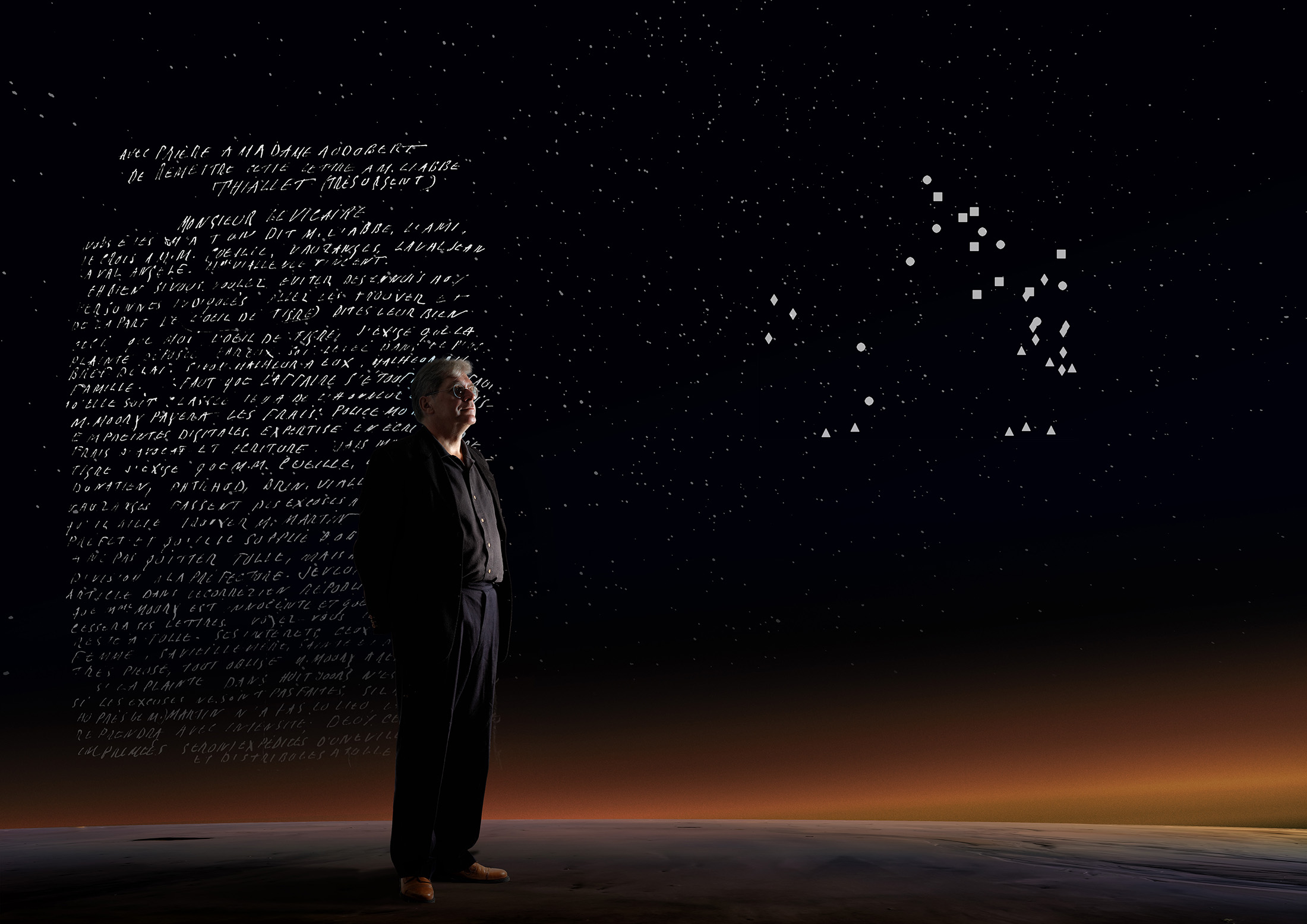- Original version in French: click here
- Translated into English with the help of DeepL (neural machine translation)
A scientist at the service of integrity

Dr Claude-Alain Roten’s express bio
- Birth: 1960 (Valais, Switzerland)
- Master in biology, UNIL: 1985
- Doctorate in science, UNIL: 1992
- Current position: CEO, OrphAnalytics
Photo by: Philippe Krauer
Tell us about your passion for biology…
For as long as I can remember, I’ve loved the scientific process. But it was also in the air at the time! I was born in the 1960s, and on television we saw rocket launches and astronauts walking on the moon. My first purchases, at the age of 10, were naturally scientific books. So I lived in a different context to the one we live in now: at the time, society did not question science and medicine; scientists were badly needed!
What next?
I crystallised this interest by preparing for a scientific baccalaureate in a school in the Valais region run by a rector who had a dual education in theoretical physics and theology, and who later became a cardinal! (smile) We were already talking about molecular biology, sequencing and the environment, and I was very interested in this type of information. So I enrolled in biology at UNIL. I really enjoyed the first two years, especially the laboratory and field activities, as well as the optional geology courses. When much later I became interested in the origin of life (Dr Roten refers to his research in exobiology, editor’s note), this training in geology proved to be very useful. In the following years I continued my studies in the field of microbiology, biochemistry and plant physiology, with a particular interest in the former. I was also interested in using mathematical tools…
And so you decided to continue with a PhD…
Yes, for me it was natural. My research area was the peptidoglycan, a component of the bacterial wall. At the end of my thesis, I was impressed to see how powerful an immunomodulator this molecule is! I then moved to the United States, to Harvard University, to start a postdoctorate. I consider this to be an important step, also for losing inhibitions. Coming from a Swiss university, you might think that you are doing second-rate science. However, working at this respected university, I became aware of the resources that other scientists actually had to carry out their research. It was then that I realised that the conditions and resources available in Switzerland could give me the opportunity to do the same one day.
Then you conducted scientific research at UNIL, while gradually orienting your career towards entrepreneurship. Tell us about this transition.
In fact, I have created two start-ups! In the 2000s, I co-founded a company offering a computerised genomic analysis tool. At the time, it was very difficult to sequence DNA and there was a great risk of error. Our start-up therefore offered a solution for statistical analysis and verification/validation of genomes. This was the beginning of what we now call “data science”. A few years later, this technology also enabled me to study the genome of 300 bacteria and identify the Ter domain, where the replication of the chromosome ends. Finally, at the end of my UNIL contract, I founded my second start-up: OrphAnalytics.
Can you present OrphAnalytics in the form of an elevator pitch?
Our technology allows us to answer the question: “Who wrote a text?” We have a software tool that can measure the syntax of a text and compare it with other texts. Syntax (i.e. turns of phrase or style) is a stable signal for determining who wrote a text. If the writing styles are very different between texts, the software will measure a significant difference, and if the styles are very close, it will measure a match (i.e. a match indicates that the texts being compared were most likely written by the same person). The advantage of this technology is that it is objective, fast and reproducible, as it is a machine learning analysis.

Before we talk about possible applications, can you explain the origin of your idea?
When I was demonstrating a statistical genome analysis tool to my colleagues at UNIL, I was using texts instead of DNA code for purely pedagogical purposes. One day, I experienced what is called the “Aha! moment”, I wanted to use the tool to compare the writing styles (syntax) present in different texts. As this worked well, the tool was later optimised to be fully transposed to the field of stylometry, an existing discipline of linguistics that is specifically aimed at the analysis of written language and the authentication of anonymous texts. In summary, I was able to confidently draw on my expertise in the field of genomics to adapt and introduce a new technology based on machine learning into the field of linguistics and stylometry.
What are the applications of this new technology?
Authentication affects many fields, mainly education, research and legal cases. Our solution allows for the rapid detection of style breaks and is therefore effective in uncovering plagiarism and the illicit use of ghostwriters in academic work. It can also be useful for forensic investigations (e.g. the Grégory case and the analysis of threatening letters). I would like to point out that in the judicial framework, we do not provide evidence, but an analysis of proximity of styles. OrphAnalytics has also started analysing melodies and images (with a view to authenticating musical works and paintings, editor’s note): the preliminary results are encouraging. The approach is original, but it is both a great opportunity and a challenge, because we have to keep explaining which questions our solution can answer!
What does your work actually involve?
The entrepreneur becomes a manager at some point. There is a lot to do and I can’t take charge of everything. For example, I wanted to do the analysis of QAnon’s texts, I had to find the person within the company who wanted to do it, and then make sure that they had the necessary skills and support. In the end, I’m acting like a thesis supervisor! (laughs) So we could aim for utilitarian assignments only. But honestly, if I didn’t have high-profile analyses like QAnon, Ferrante, or Millenium, how could I present my solution to organisations like UNIL?
What skills are needed to develop and manage a business?
Starting a business requires a lot of skills, so it is difficult to have them all. The main thing is to be convinced that the project is worthwhile. I had a grid with several questions to ask myself, the two main ones being: “Will I have fun? and “Do I have the scientific skills? ». Let’s face it: it’s a life of hard work, because eight out of ten start-ups disappear after six years! So fun is a very important aspect to consider. In terms of my scientific skills, I have been able to draw on 10,000 hours of expertise in the field of genomic analysis. I would like to add that my approach is not to develop a start-up to sell it quickly, as can be the case for spin-offs coming out of the university, but rather to pay myself in pleasure, contacts and projects. I am involved at the heart of the process, including as a shareholder.
What values do you want to convey through OrphAnalytics?
Probably intellectual honesty and integrity! According to some experts, 10% of the students would defraud either by ghostwriting, plagiarism or by tinkering with scientific results. Currently, ghostwriting services are available from professionals at an affordable price. Students who use this service get better grades for less effort: there is a premium for fraud! The idea is to favour honest students, by authenticating their productions with a “textually transparent” label (they should agree to submit their productions to the delta2T software). The certification of good writing practices would thus make it possible to reverse the situation and would serve as a brake on those tempted to cheat. It is an observation: when a person cheats, he or she will continue on that path. This weakens our institutions: not only will the graduate gain access to positions with a lack of skills, but he or she will be exposed to pressure and potential blackmail. This practice would favour students with integrity to access positions of responsibility.
Is a satisfactory balance possible between intellectual curiosity (proper to the researcher) and the search for new markets (proper to the entrepreneur)?
I believe that when you are a researcher, you are an entrepreneur (and vice versa), the difference is where you place the cursor. As you can see, I love to get out of the box! (laughs) Looking for other markets? It’s all good for me!
If you were to promote the doctoral programme to students, which argument would you put forward first?
Thesis work is an opportunity to discover the world of research and to experience teamwork. At the beginning, there is little autonomy. But if the doctoral student is lucky, the thesis director will gradually let him explore with a greater degree of freedom, so that he can answer his own questions. And it takes time to learn to formulate questions that will lead to decisive answers. But this journey is invaluable, because it is linked to the consolidation of self-esteem and confidence, and these ingredients are necessary for a scientific career, because one must dare to think outside the box!
Any advice for PhD students?
In parallel with my research activities, I also directed the Vaud Society of Natural Sciences from 2000 to 2004, where I rubbed shoulders with mathematicians, chemists, physicists, biologists, etc. I encourage PhD students to take an active part in it: it is a way of becoming part of the local scientific environment.
The final message?
Trust is the key. At the time, when I was 10-12 years old, there was a moment after the meal when I had to wipe the dishes. I used this time to tell my father, a postman, what I had read about science. I think it was these moments that made me want to become a scientist. They gave me that touch of madness and the feeling that I was going to be able to decipher an uncharted area. Looking back on it, I think it was the greatest asset I received in my life.
Interview by: Laura De Santis
